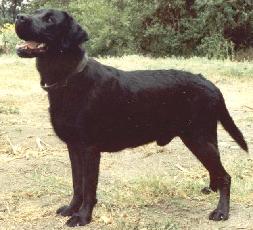The ages of 6-18 months can be the most trying time for dog owners. However, your puppy will go through this stage whether you he comes to live with you when he is very young, or during this 6-18 month period. The only way to avoid the "teenager" phase is to get an adult dog.
|
 |
| 6 months old |
|
|
Labradors are very adaptable and will quickly adjust to a new home, although older puppies may seem to be overwhelmed at first. They do not have the self-confidence of an adult dog, and they are more conscious of their strange surroundings than young puppies.
|
 |
| .... and 18 months old |
|
|
 |
| 6 months old |
|
|
There are a couple of major considerations when deciding whether to get an older puppy. The first is whether your home will provide as much care and attention as the previous home. If not, the puppy is likely to be unhappy. It is easy to adjust to more attention, but not to less.
|
 |
| 13 months old |
|
|
Secondly, has the puppy developed bad habits such as uncontrolled barking, destructiveness, or housebreaking accidents? Most of these problems result from lack of attention and inconsistent discipline, and can be solved, but you have to be prepared to put in the time and effort immediately. There is no grace period with an older problem puppy.
|
 |
| 13 months old |
|
| On the other hand, an older puppy with no bad habits is a bonus, since it is already housebroken,has gone through teething and has at least basic manners. It may still garden and do some carpentry, but it has enough mental maturity to quickly learn and remember the house rules and any other training you want to pursue.
|
|
|